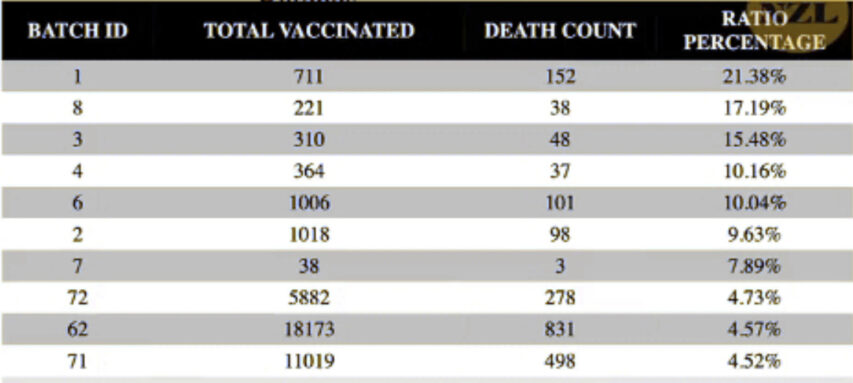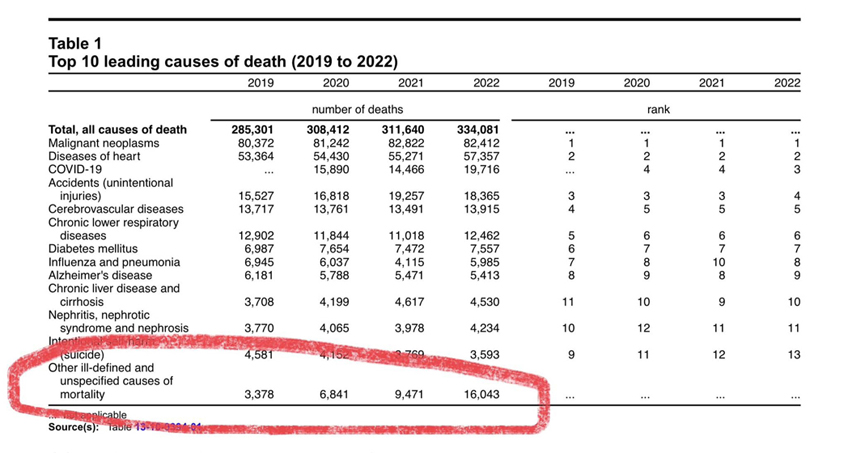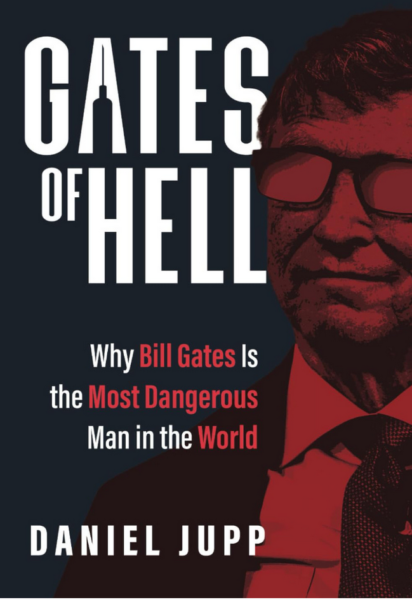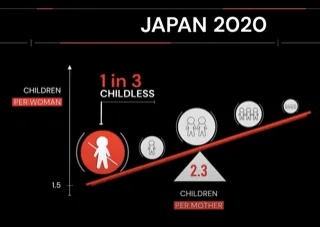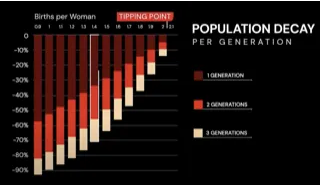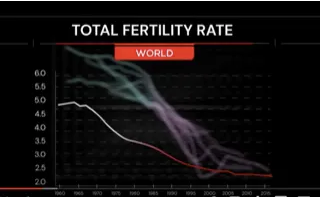There’s a popular narrative that drug companies have stolen the soul of psychiatry. That they’ve reduced everything to chemical imbalances. The people who talk about this usually go on to argue that the true causes of mental illness are capitalism and racism. Have doctors forgotten that the real solution isn’t a pill, but structural change that challenges the systems of exploitation and domination that create suffering in the first place?
No. Nobody has forgotten that. Because the third thing you notice at the American Psychiatric Association meeting is that everyone is very, very woke.
Here are some of the most relevant presentations listed in my Guidebook:
Saturday, May 18
- Climate Psychiatry 101: What Every Psychiatrist Should Know
- Women’s Health In The US: Disruption And Exclusion In The Time Of Trump
- Gender Bias In Academic Psychiatry In The Era Of the #MeToo Movement
- Revitalizing Psychiatry – And Our World – With A Social Lens
- Hip-Hop: Cultural Touchstone, Social Commentary, Therapeutic Expression, And Poetic Intervention
- Lost Boys Of Sudan: Immigration As An Escape Route For Survival
- Treating Muslim Patients After The Travel Ban: Best Practices In Using The APA Muslim Mental Health Toolkit
- Making The Invisible Visible: Using Art To Explore Bias And Hierarchy In Medicine
- Navigating Racism: Addressing The Pervasive Role Of Racial Bias In Mental Health
Sunday, May 20
- Addressing Microaggressions Toward Sexual And Gender Minorities: Caring For LGBTQ+ Patients And Providers
- Latino Undocumented Children And Families: Crisis At The Border And Beyond
- Racism And Psychiatry: Growing A Diverse Psychiatric Workforce And Developing Structurally Competent Psychiatric Providers
- Sex, Drugs, And Culturally Responsive Treatment: Addressing Substance Use Disorders In The Context Of Sexual And Gender Diversity
- Grabbing The Third Rail: Race And Racism In Clinical Documentation
- Racism And The War On Terror: Implications For Mental Health Providers In The United States
- The Multiple Faces Of Deportation: Being A Solution To The Challenges Faced By Asylum Seekers, Mixed Status Families, And Dreamers
- What Should The APA Do About Climate Change?
- Intersectionality 2.0: How The Film Moonlight Can Teach Us About Inclusion And Therapeutic Alliance In Minority LGBTQ Populations
- Transgender Care: How Psychiatrists Can Decrease Barriers And Provide Gender-Affirming Care
- Gun Violence Is A Serious Public Health Problem Among America’s Adolescents And Emerging Adults: What Should Psychiatrists Know And Do About It?
- Working Clinically With Eco-Anxiety In The Age Of Climate Change: What Do We Know And What Can We Do?
- Are There Structural Determinants Of African-American Child Mental Health? Child Welfare – A System Psychiatrists Should Scrutinize
Monday, May 21
- Community Activism Narratives In Organized Medicine: Homosexuality, Mental Health, Social Justice, and the American Psychiatric Association
- Disrupting The Status Quo: Addressing Racism In Medical Education And Residency Training
- Ecological Grief, Eco-Anxiety, And Transformational Resilience: A Public health Perspective On Addressing Mental Health Impacts Of Climate Change
- Immigration Status As A Social Determinant Of Mental Health: What Can Psychiatrists Do To Support Patients And Communities? A Call To Action
- Psychiatry In The City Of Quartz: Notes On The Clinical Ethnography Of Severe Mental Illness And Social Inequality
- Racism And Psychiatry: Understanding Context And Developing Policies For Undoing Structural Racism
- Trauma Inflicted To Immigrant Children And Parents Through Policy Of Forced Family Separation
- Deportation And Detention: Addressing The Psychosocial Impact On Migrant Children And Families
- How Private Insurance Fails Those With Mental Illness: The Case For Single-Payer Health Care
- Imams In Mental Health: Caring For Themselves While Caring For Others
- Misogynist Ideology And Involuntary Celibacy: Prescription For Violence?
- Advocacy: A Hallmark Of Psychiatrists Serving Minorities
- Inequity By Structural Design: Psychiatrists’ Responsibility To Be Informed Advocates For Systemic Education And Criminal Justice Reform
- Treating Black Children And Families: What Are We Overlooking?
- Blindspotting: An Exploration Of Implicit Bias, Race-Based Trauma, And Empathy
- But I’m Not Racist: Racism, Implicit Bias, And The Practice Of Psychiatry
- No Blacks, Fats, or Femmes: Stereotyping In The Gay Community And Issues Of Racism, Body Image, And Masculinity
- Silence Is Not Always Golden: Interrupting Offensive Remarks And Microaggressions
- Black Minds Matter: The Impact Of #BlackLivesMatter On Psychiatry
… you get the idea, please don’t make me keep writing these.
Were there really more than twice as many sessions on global warming as on obsessive compulsive disorder? Three times as many on immigration as on ADHD? As best I can count, yes. I don’t want to exaggerate this. There was still a lot of really meaty scientific discussion if you sought it out. But overall the balance was pretty striking.
I’m reminded of the idea of woke capital, the weird alliance between very rich businesses and progressive signaling. If you want to model the APA, you could do worse than a giant firehose that takes in pharmaceutical company money at one end, and shoots lectures about social justice out the other.
Scott Alexander, “The APA Meeting: A Photo-Essay”, Slate Star Codex, 2019-05-22.
December 13, 2023
December 9, 2023
All those (officially unexplained) “excess” mortalities
Mark Steyn discusses European and Antipodean statistical reports that echo what Maxime Bernier was talking about the other day on the as-yet officially unexplained huge rise in “excess mortality” since the Wuhan Coronavirus pandemic:
We are now three years into the administration of the Covid vaccines, and we have many startling statistical anomalies, including the most basic one of all: a huge mound of extra corpses. Per the EU’s official statistics agency:
Among the eighteen EU Member States that recorded excess deaths, the highest rates were in Cyprus (13.9%), Finland (13.4%), the Netherlands (12.7%) and Ireland (12.5%).
Those percentages are sufficiently high that in the Netherlands, formerly one of the healthiest nations on earth, they’re reducing life expectancy. The ongoing excess deaths are at odds with the normal post-pandemic pattern, such as the Spanish Flu a century ago. The intro to this new scientific paper sets out what’s meant to be happening:
Our approach takes into account age and gender, but also under-mortality that you would expect after a period of excess mortality.
“Under-mortality” occurs because, if the Spanish Flu killed you prematurely in 1920, you weren’t around to die when you otherwise would have done in 1924. Hence, excess mortality is followed by under-mortality. So:
If this under-mortality does not seem to be happening, it is actually hidden excess mortality.
That’s an important point. What Eurostat identifies as an excess mortality rate in Ireland of 12.5 per cent is, as a practical matter, actually higher – because it should be measured against not the pre-Covid baseline but the under-mortality one would have expected four years on. So persistent excess mortality is deeply weird, and, unlike those killed by the virus (where the median age of death by Covid is above most developed nations’ life expectancy), the extra deaths, as we have discussed on The Mark Steyn Show, are skewed towards the young and middle-aged:
We note that excess mortality in the Netherlands remains consistently high during 2020-2022 and has shifted from high to low age and towards men.
In other words, it’s not a general trend of excess deaths, but something more particular. Which, in a normal environment, would suggest something particular is causing it. Aside from excess deaths in “low age”, we also have excess deaths at no age – the babies who aren’t being born. The western world’s jabbed and re-jabbed citizenry has seen a catastrophic slump in newborns. Scandinavia:
The whole region reported sharp declines in fertility rates in 2022. Finland had the lowest fertility rate of all Nordic countries, 1.32 children. This is also the lowest Finnish rate since 1776 when monitoring of fertility rates first started.
Incidentally, that Finnish rate – of 1.3 children per woman – is what demographers call “lowest-low fertility”, from which no society has ever recovered.
Fortunately for officialdom, there was enough Covid circulating in Finland, Ireland, the Netherlands, etc that the ever higher mountain of corpses can be shrugged off as most likely “Long Covid” or maybe, if necessary, “Extra-Long Covid”. In the Antipodes, they can’t get away with that. Australia and New Zealand enacted some of the most draconian public-health measures on the planet, and in effect quarantined their entire nations. As a result, pre-Omicron they had all but negligible accounts of Covid. But they obediently submitted themselves to the mass vaccination regime. And, whaddaya know, they too have extraordinary rates of excess death.
Clare Craig, a favourite guest of The Mark Steyn Show, has published a detailed analysis of the post-vaccination years Down Under. It makes for sober reading.
In 2021, for example, they had officially 1,224 deaths from Covid.
But also in 2021 – the first full year of the vaccines – they had 876 excess deaths from ischaemic heart disease alone. Plus another 583 excess deaths from other cardiac diseases.
Death by ischaemic heart disease had been in decline in Australia in the pre-vaccine years, but, having shot up in 2021, it went up even further in 2022. (Same trend with strokes.) So, having shut down the country for those 1,224 Covid deaths, you would think the public health bureaucracy might show a smidgeonette of interest in those 1,359 excess cardiac deaths.
But apparently not.
Now, across the Tasman Sea, we have a Kiwi whistleblower, Barry Young, who has released an avalanche of data with some quite disturbing takeaways that I referenced on Wednesday’s Clubland Q&A. I was careful to qualify my remarks with a lot of “ifs”, but our friend Norman Fenton, Professor of Risk Information Management at Queen Mary University, has taken a look and The Conservative Woman has published his findings. I see that on the Internet the kneejerk reaction was that Mr Young had simply leaked a lot of vaccination stuff from the old folks’ homes where the Covid centenarians would have died anyway. So it’s a biased sample.
In reality, it does not appear to be a “sample” at all:
[Steve Kirsch] says that there are widespread misunderstandings about the data and it is not biased. For a start he says that the dataset is the complete set of ‘pay-per-dose’ vaccination records and therefore there is no biased sampling at all. He says:
“The people within the group is representative of the total population. There are 2.2 million people in the group, and there are 4 million records. Each of those records is a Vaccination Record.”
2.2 million is over forty per cent of the population of New Zealand. That’s some “sample”. Nevertheless, Professor Fenton is being scrupulously cautious:
Even accounting for inevitable “survivor bias” (the more jabs a person gets, the quicker they are likely to die after their last jab) there was some evidence of increased risk the more doses a person gets. Moreover, given Steve’s comments about the datatset being the complete set of “pay-per-dose” vaccination records, this conclusion seems robust even if there were a biased proportion of vaccinee deaths in the dataset. Also (as per my above quote in Steve’s presentation) I felt that the data provided further support for the hypothesis that the vaccine was increasing the mortality rate in the older population (something which we had already concluded based on the most recent ONS data).
It’s interesting that such questions never come up at Britain’s official “Covid inquiry” which is increasingly risible in its palpable determination to find that the only mistake that was made was not to lock down harder and faster.
The other takeaway mentioned by Professor Fenton is the fatality rate of individual batches. Take a look at this handy graph:
I suppose it would be possible to argue that all 711 jabs of Batch #1 were administered to residents of the Shady Acres Retirement Home for Centenarians with Stage Four Ebola. But it’s difficult to make the same case with Batch #62 which went into the arms of 18,173 New Zealanders and killed 831 of them. Which, all by itself, is two hundred times the country’s official death toll from the vaccines. Which is to say, according to His Majesty’s Government in Wellington, precisely four Kiwis are dead of the vax.
December 8, 2023
“An error of this magnitude makes one wonder how robust such calculations are”
Christopher Snowden notes the proliferation of media and public advocacy groups warning us about “junk food”:
On Monday, the front page of The Times led with a speech from Henry Dimbleby and a cost-of-obesity estimate from the Tony Blair Institute for Global Change — the perfect start to the week for any Times reader. According to Sir Tony’s think tank, “the effect on national productivity from excess weight is nine times bigger than previously thought”. An error of this magnitude makes one wonder how robust such calculations are (the previous estimate only came out last year), but Mr Dimbleby saw it as further proof that food should be treated like smoking.
The NHS “will suck all the money out of the other public services” while “at the same time, economic growth and tax revenue will stagnate. We will end up both a sick and impoverished nation,” Dimbleby will warn.
Would it be unfair to point out that the USA has much higher rates of obesity than the UK and also has much higher GDP growth?
As I pointed out on what I shall continue to call Twitter, the estimates as bunkum. They come from Frontier Economics and were first commissioned by the makers of Wegovy, presumably to make their effective but expensive weight loss drug look like a relative bargain.
Their previous estimate of the cost of obesity to “society” was £58bn. This year’s estimate is £98bn, most of which (£57bn) comes from lost quality-adjusted life years. As I tire of pointing out, these are internal costs to the individual which, by definition, are not costs to wider society. I can’t stress enough how absurd it is to include lost productivity due to early death as a cost to the economy. You might as well calculate the lost productivity of people who have never been born and claim that contraception costs the economy billions of pounds.
Since the previous estimate, the costs have been bulked up by including the costs of being overweight, but there is no indication in the wafer-thin webpage of what these are. Being merely overweight doesn’t have many serious health implications. The healthcare costs have doubled, but as in the previous report, the new estimate does not look at how much more healthcare would be consumed if there was no obesity. No savings are included. What we need is the net cost.
The “report” that The Times turned into a front page news story is no more than a glorified blog post. It contains no detail, no methodology and none of the assumptions upon which it is based can be checked. It comes with an eight page slideshow from Frontier Economics which is described as a “full analysis” but which doesn’t contain any useful figures either.
Estimates like this are bound to mislead the casual reader into thinking that they are paying higher taxes because of obesity. There is no other reason to publish them, as they have no academic merit. They are designed to be misunderstood.
Sure enough, the very next day The Times was explicitly claiming that the putative £98 billion — now rounded up to £100 billion — was a direct cost to government …
The findings come after an analysis found this week that Britain’s weight problem is costing the state almost £100 billion a year.
December 7, 2023
Burying the lede … and the victims
Maxime “Mad Max” Bernier sent out a fundraising letter to PPC supporters that included some disturbing new data from Statistics Canada:
As usual, the biggest news in Canada is being ignored by all of our crooked establishment politicians and the dishonest corporate media.
Last week Statistics Canada released a report on deaths in Canada (causes of death, overall life expectancy, etc), which include the latest data from 2022.
I’m not a doctor, a scientist, or even a statistician, but when I saw the table below, a few things jumped out at me.
First, deaths related to covid-19 (check the fourth line) were at an all-time high in 2022!
Can you believe that? There were more covid deaths in 2022 than the two years before.
And yet that same year saw the end of mask mandates, vaccine passports, and most covid measures.
For two years the elites blasted us with propaganda and warped our society around this mild illness, but when deaths were rising, they were silent. Bizarre!
To be clear, I am not advocating for any of these unnecessary draconian restrictions to return, I am just demanding some honesty and consistency from our morally corrupt politicians, public health officials, and media!
It has never been so obvious that covid restrictions were not scientific, they were just about politics and control.
But the most disturbing part is what I have circled at the bottom of the table. Deaths with “ill-defined or unspecified causes” have been steadily increasing since 2020.
These deaths have almost TRIPLED since 2020 from 6,841 to 16,043 in 2022.
What could be causing this? What happened in 2021 that could have caused this explosion of unexplained deaths over the last 2 years?
An experimental pharmaceutical product was rushed to market and forced on Canadian society, is what happened.
They told us it was “safe and effective” but over the last few years we have learned more and more about how that covid shot was neither.
Now more and more Canadians are dying from causes very likely related to the covid shot.
And where is the accountability?!
There is no admission of any possible error on the part of the government. On the contrary, it’s still encouraging everyone to get boosters!
There are no demands for an inquiry by the opposition parties to investigate the potential risks associated with the covid jab.
There are no investigative journalists trying to get to the bottom of one of the biggest medical scandals in Canadian history.
No! They’re just trying to sweep it under the rug and move on!
We can’t wait for the political establishment to hold itself to account. We saw throughout the covid years that the government, the opposition, and the media will all work together to protect themselves and each other.
And we can’t let them get away with it!
December 5, 2023
Vanity does apparently have a limit (for most of us) – it’s about 25%
Rob Henderson explains why so many people — not down-to-earth sensible folks like my readers, of course — seem to have an inflated view of their own attractiveness:
A few years ago, a study on online dating found that people tend to reach up the hierarchy toward potential partners who are more desirable than themselves. On average, people pursued partners who are 25% more desirable than they themselves are.
This is consistent with what the psychologist Roy Baumeister has described as the “optimal margin of illusion”. Generally, people believe they themselves are 10-20% better than they really are.
Thus, people might not knowingly pursue individuals who are more desirable than themselves. Rather, they genuinely believe those individuals are in their league. They think they’re aiming for someone of equal attractiveness to themselves.
Consistent with this idea, a study looked at how people inflate their perceptions of themselves. The researchers brought people into their lab to have their photos taken. The researchers then digitally modified these images to varying degrees by making them look more similar to an attractive person or a less attractive person.
So imagine they take your photo (assuming you’re male) and change the image to look just a little bit more like Brad Pitt. Or a bit more like someone much uglier than you.
A few weeks later, the researchers invited the participants back into the lab and showed them either modified or unaltered photos of themselves.
People were asked to identify their true, unaltered photo among an array of images. One image was their actual photo. Others were morphed to be more or less attractive.
Participants were most likely to guess that their true photo was the one that was modified to be 10 to 20 percent more attractive.
This probably matches your own experience. Consider how you react to candid photos of other people compared to candid photos of yourself. We hear our friends say, “Ugh, that’s a horrible photo of me” and we think “No, that photo is fine, that’s what you look like.” But then we say the same thing when we see candid photos of ourselves. So unflattering.
In his book The Social Leap, the evolutionary psychologist William von Hippel has written, “That’s why you don’t like candid pictures of yourself: because they capture what you actually look like, not what you think you look like. You prefer the picture of yourself that caught you at just the right angle, on just the right day, and those are the ones you put up on Facebook, Tinder, or in the company directory.”
This pattern of self-enhancement extends beyond just physical attractiveness.
I’ve written before about the “better-than-average effect”. A large body of research has found that people tend to believe they are more intelligent, trustworthy, and have a better sense of humor than others. A recent study found that people believe they use ChatGPT more critically, ethically and efficiently than others. People think they are better drivers than average, students think they are better students than average, professors think they are better professors than average.
People do inflate their opinions of themselves. But this only goes so far. People in the photo study chose images that were slightly more attractive than the true photo, but only slightly.
Most people see themselves as just a bit better than they really are.
December 4, 2023
QotD: The “ivory gulag”
Looking at the cat ladies of both sexes and all 57 genders who ruined Trashcanistan, it seems obvious that they skipped sexual maturity – they jumped straight from “tween-ager” to “menopausal”. Even the young women in the “Social Justice” movement look – and, crucially, act – like they’re pushing fifty, while the young “men” are neotenous. Most of them are what bodybuilders call “skinny fat” – scrawny yet flabby, with no muscle tone – and the rest are morbidly obese. A crowd of college kids, again of both sexes and all however-many genders, looks like the mosh pit at the Lilith Fair. Without their exaggerated displays of secondary sex characteristics – ironic facial hair on the lads, pussy hats on the lassies – who could even tell them apart?
So, too, with their mentalities. I spent many years toiling in the groves of academe, so obviously my social life (such as it was) contained a lot of post-menopausal lesbians. No creature is more solipsistic than this. Whatever maternal instincts she once might’ve had, have curdled into general naggy truculence, and since they have all the money and free time in the world in which to indulge their narcissism, if they can’t find any actual wrongthink around they’ll simply invent some. Before the Deplorables were driven to organize themselves for gaudy, suicidal, IRA-style violence, post-Oranzhevvy Trashcanistan felt, I imagine, a lot like a college campus …
… which the few people with normal serum hormone levels who were stuck there often called “the ivory gulag”. Make of that what you will.
Severian, “Hormones, or Lack Thereof”, Founding Questions, 2021-01-20.
December 1, 2023
“I considered shopping a proposal for an anti-helicopter parenting book called Your Kid Sucks, but for some strange reason my agent dissuaded me”
Freddie deBoer on the modern phenomenon of “helicopter parenting”:

Collapse in childhood freedom – Graphic showing the diminishing “free ranges” of each generation of an English family.
For the New York Times, Jessica Grose details how new online grading systems allow parents to track the progress of their children not from year to year, semester to semester, report card to report card, but week to week or even day by day. The results are depressingly predictable, in today’s parenting environment. There’s stress for students and teachers alike, a collapse in interest in learning in and of itself, an adversarial relationship between parents and teachers, and the rise of “hyperchecking”, where parents complain about each and every single grade that isn’t an A. The piece is about K-12, but Grose notes that parents are increasingly seeking access to college online gradebooks, which seems crazy to me; as someone who’s taught a lot of college classes, the idea of someone constantly monitoring a student’s grade with the mindset of a litigious lawyer sounds awful. But then again, perhaps I shouldn’t be surprised. Here’s a piece about helicopter parenting extending into the college years to the extent that the parents are arranging social calendars. Of their college-age children.
I’ve been thinking about these issues for some time — I considered shopping a proposal for an anti-helicopter parenting book called Your Kid Sucks, but for some strange reason my agent dissuaded me — and what I can’t stop wondering is why parents don’t stop doing this stuff for the good of their kids themselves. There are social and philosophical critiques to be made of helicopter parenting, some very good ones. But we never need to wonder why people choose to pursue selfish interests over social or philosophical ones. What consistently surprises me is that parents keep puttering along in the clouds above their kids, binoculars in hand, when there seem to be really compelling arguments against doing that for reasons that are completely aligned with the selfish interests of the kids. I get ignoring social responsibility for the sake of your kid; it’s hard to understand ignoring what’s best for your kid for the sake of your kid.
There’s the social case to be made against helicopter parenting, of course. If you wanted to define the essential moral project of human beings in the broadest terms possible, you could do worse than “put others before self”. Aggressive parenting allows people to juke this basic logic — parents who act as though their child’s best interest is the only important criterion are, in a literal sense, putting someone else before themselves. “Hey, I may be disadvantaging already-disadvantaged kids with my hyperactive parenting, but I’m doing it for a greater cause than myself.” And the intrinsic (genetic) dedication to the good of one’s child obliterates the broader social concerns once freed from the guilt of traditional for-myself selfishness. But hyper-parenting still reflects selfishness, putting your own kin above the interest of everyone else, especially in cases where the harm done to society is a lot bigger than the benefit to your child. Academic malfeasance like the Varsity Blues scandal has obvious negative social consequences, for example, while those specific kids faced only going to slightly less competitive or desirable schools had there been no fraud in their applications. Less directly illicit behavior, like grade grubbing — which, among other things, inevitably benefits the students with the parents who are the most aggressive and who hold the most social capital — are a greyer area, but ultimately do more to unbalance an already-unbalanced system. If these parents were confronted with the opportunity to do this for themselves, I genuinely think that most of them would decline, out of a sense of social obligation. But once it’s “for my kid”, it’s no holds barred.
I think absolutely all parenting contains a little narcissism, and that’s OK; it’s probably a part of our genetic endowment that helps compel parents to nurture their children, and anyway parenting is a tough job that we shouldn’t expect people to perform with no sense of self-satisfaction. But it is one of those quirks of our social order that the parents who are the most politically progressive, who most ardently advocate for a society that serves all of our people, are often also the most unapologetic about putting their thumb on the scale for their own children. Plus, the sort of second-order selfishness of parenting allows for the sidestepping of more philosophical objections to helicopter parenting. These objections are less about the social good of others and more about the content of our individual characters. These include personal values such as the notion that we just should, as human beings, be able to live with a degree of independence in youth; that we just should experience hardship and the consequences of our actions to better appreciate what it means to be alive; that we just should, as human beings, secure our own interests to whatever degree we’re able, without help from above, including in school; that we just should operate as though we are but one in a broad collection of human beings, all of whom matter as much as we do, for our own spiritual good. The thing about these personal values is that they’re only motivating if they are indeed personal — that is, these might sway an individual, but not even occur to their parents, and in our system parents have remarkable ability to obstruct the agency of their kids. They can do the dirty work the kids might not do for themselves.
November 27, 2023
QotD: The PUA (Pick-up Artist)
… the women the PUAs are after aren’t the kind that interest me, much of “game” as described in the PUA culture fills me with a mix of recognition and revulsion. And a third, more complex reaction that is the real reason I’m writing this essay.
One one hand, I recognize techniques like kino escalation. Oh, do I ever! Adroit use of that one has gotten me into the sack more times than I can count. On the other hand, I’m basically incapable of what PUAs call the neg; I can’t insult a woman even by implication unless I think she’s done something to specifically deserve it, and the thought of flinging negs to score sex disgusts me in a very fundamental way.
On the gripping hand … I recognize a harsh truthfulness in a lot of what the PUAs are saying. Crudely put, the “game” advice for most men (the population PUAs call AFCs or “Average Frustrated Chumps”) reduces to behaving like an asshole so women will mistake you for an alpha. I really am an alpha, so I don’t have to asshole-fake it — but it is nevertheless quite clear to me that the PUAs are on to something. This is frequently a successful strategy; I’ve been outcompeted by it myself on several humiliating occasions. Furthermore, the PUAs are probably correct in asserting that for many AFCs it is the best strategy available, and never mind that the thought of running it myself turns my stomach.
In the PUA’s disturbingly persuasive analysis, I’ve had the luxury of not treating women like shit only because I have often had USPs for the brighter-than-average women I was interested in, notably in the combination of alpha-male qualities with high intelligence and expressive skills. Without those USPs, argues the PUA, my choices would have reduced to “frustrated loser” or “sexually successful douchebag” — and, looking at my own experience and that of my less successful peers, I find myself unable to refute this.
That is kind of horrifying if you think about it. Possession of USPs is rare by definition, and if you have one you’re more than averagely likely to be an alpha anyway. The PUA is telling us that human beings are designed in such a way that the most reliable way for the large majority of beta males to get sex is to behave like narcissistic, dominating, emotionally-unavailable jerks. This would be appalling enough as pure theory, but the PUA makes it worse by applying it to actually have lots of sex. “Success” one blog unsparingly observes “is defined by penis in vagina”. Never take your eye off that ball, says the PUA. Much as one might like to dismiss this as crass reductionism, evolutionary theory makes any countercase rather difficult to argue.
How did our poor species get into this hole? The PUA community gravitates to evolutionary-psychology explanations for human behavior as much as I do, it’s one of the interesting things about reading their stuff. It’s remarkable how often they manage to apply facts about human reproductive biology in a tactical way. The use they make of evo-bio concepts like hypergamy, peacocking, and sexy-son theory is, I find, sound and justified. The kind of pitiless clinical eye they turn on human mating interactions could scarcely be bettered by most scientists.
But the PUAs don’t, at least so far as I’ve yet seen, have a generative explanation for why women friend-zone nice guys and fuck bad boys. They accept this as the foundation of game without asking what circumstances in the environment of evolutionary adaptedness stuck women with apparently counterproductive wiring.
I’ve thought about this, and the only plausible explanation I can come up with is that in the EEA, when early humans lived in small hunting bands, the behaviors modern assholes now use to fake alpha must have been reliable indicators of superior status. Perhaps they were much more risky to fake in a small society where beta males were almost constantly under they eye of senior alphas with hard fists.
Meanwhile, back in modernity, we’re stuck with the consequences – men who have been trained to be imitation-alpha jerks and abusers by women who are sexually fickle, manipulative and cruel towards beta males. It’s not a pretty picture, not if you’re looking in from halfway outside it like me and certainly not if you’re stuck in the middle of it as an invisible AFC or a woman wondering why she’s surrounded by douchebags.
Eric S. Raymond, “A natural contemplates game”, Armed and Dangerous, 2011-03-03.
November 24, 2023
It sometimes seems that the only thing that isn’t “violence” these days is actual violence
David Sedaris at The Free Press:

“Gen Z” by EpicTop10.com is licensed under CC BY 2.0
Words, we are now regularly reminded, are violence. So too is silence. I read not long ago that capitalism is violence, as is misgendering someone. Ignoring someone is violence, but so too is paying them attention. A friend recently called on one of her assistants to deliver a statistic during a business meeting and was later charged with “casual violence”. Apparently Deborah needed to give advance warning that she was going to ask a question, one that might possibly put her employee — someone who was well paid to know stuff and be able to spew it forth — on the spot.
Who are these hothouse flowers, all so easily and consistently wounded? People whose parents never hit them, that’s who. People who don’t know what real pain is, but still want to throw the word around. When I was a child, a slap across the face was too minor to qualify as “casual violence”. It was simply what you got for talking back or holding everyone up. It never hurt all that much; what stung was the swiftness of it, the surprise. Who knew my mother could move so fast, like someone belted in the martial arts. I don’t feel like it traumatized me to be knocked around a little. Blood was rarely drawn. No limbs were broken. Could my parents have made their point without resorting to violence? Probably, but it would have taken more time, and with six kids to dress and get out the door that was a precious commodity. I see parents now who worry they’re being abusive if they don’t spend at least an hour putting their child to bed. An hour! I said to my sister, Amy, “Do you remember ever once being tucked in? Can you imagine Mom and Dad reading to us, or singing? Can you imagine them kissing us?”
“Ugh,” she said. “Stop!”
And look at us! We’re fine. We can handle stuff. We never get offended by anything.
Our parents thought we were okay, at best, and I think that really helped us in the long run. Ask someone now if they have kids, and they’re pretty much guaranteed to use the word amazing, as in “I have an amazing six-year-old daughter.”
“Amazing because she just discovered a cure for herpes or because she speaks three words of Spanish,” I always want to ask. “I mean, just how low have you set that bar?”
One of the worst things that’s happened to us as a country is that people are having fewer children — 1.8 as opposed to five 50 years ago. Sure, it’s good for the environment — fewer people means less demand for resources. The problem is that single children receive a freakish amount of love and attention. Most graduate at least twelve times before leaving high school. Their every move is recorded and celebrated, and it gives them an outsize sense of their own importance.
The solution isn’t for every couple to start having five kids again, but maybe for one chosen couple to have five, and the other four couples to go without — either have a full litter you can’t pay that much attention to, or nothing at all.
If our schools are a mess it’s in large part due to these parents who think their kids are special, who get mad if you contradict their brilliance, if you give them a bad grade or, God forbid, try to take their phones away. Had one of my teachers told my mother that I was acting up in class, she’d have said, “Thank you so much for letting me know.” Then she’d have come to wherever I was — in front of the TV, or at the side of the TV making my way to the front of it — and slapped my sister Gretchen so hard her eyes would have crossed.
“What was that for?” Gretchen would have asked.
“Oops, wrong kid,” my mother would have said. Then she’d have slapped me twice as hard to make up for her mistake.
November 13, 2023
Winners and losers of the “sexual revolution”
Janice Fiamengo missed her trip to London this week due to illness, so she also missed a panel discussion at the ARC (Alliance for Responsible Citizenship) Conference that raised her ire:
On the subject of widespread sexual promiscuity, family breakdown, and fatherless homes, pundits Jordan Peterson, Louise Perry, Mary Harrington, and Stephen Blackwood carefully ignored the hulking feminist elephant in the room, arguing that the primary victims of the sexual revolution have been women (and children as well, as something of an afterthought). The primary beneficiaries have been a few psychopathic men who have left a trail of broken hearts and rudderless children in their wake. It’s a convenient thesis in a culture terminally averse to criticizing women, but it avoids some important facts.
The whole discussion, actually, begins from a false premise. If there was ever a sexual revolution in which we all simply consented to do what we wanted sexually, as Louise Perry claimed, that revolution ended over 30 years ago when Anita Hill complained before a Senate Judiciary Committee that Clarence Thomas, former chair of the Equal Employment Opportunity Commission, should not be confirmed as a Supreme Court Justice because he had once joked to her about a pubic hair floating on his Coke. At that point, the alleged sexual vulnerability of women, whose sensitive ears must not be subject to comments by male colleagues about pornography or penis size — and the need for legislation to protect and accommodate them at the expense of male freedom of expression — reasserted itself with a vengeance. The feminist claim that women merely wanted equal rights and an end to sexual double standards was exposed as a feeble lie.
Sexual harassment legislation soon made it a potential firing offence for a man to make a female workmate uncomfortable, whether by standing too close, looking too intently, or making the wrong joke or comment. Later, the #MeToo movement proclaimed it righteous that any man who had ever been sexual with any woman (or even just any man, who didn’t even have to know the woman smearing his name) could be accused of sexual misconduct, fired from his job, and permanently disgraced (the DAMN Handbook contains an extraordinary list of celebrity men destroyed by allegations in 2017 alone; see pp. 8-17). Free love, if it ever existed, has been dead for a long time, and some of the same women who cheered on the idea of sexual freedom were the ones who killed it.
But #MeToo, false allegations, the ever-expanding territory of sexual misconduct, and the anti-male tenor of nearly every public discussion about sex—these were emphatically not the focus of the ARC panel, which zeroed in on female sexual victimization. The goals that countless women have proclaimed necessary—sexual freedom, abundant birth control, single motherhood—were criticized as harms for women. We heard that the medium to long-term well-being of women and children has been sacrificed to the short-term gratification of a minority of men; and that these men also tend to be, according to Peterson, possessed of psychopathic, Machiavellian, narcissistic, and sadistic tendencies. Amongst the fallout are the 50% of British children raised in homes without fathers.
It was stirring stuff, certainly, though not exactly a new proposition. Radical feminists like Sheila Jeffries have long argued (in her book Anticlimax: A Feminist Perspective on the Sexual Revolution and elsewhere) that the sexual revolution merely affirmed and updated the victimization of women by men while conservative non-feminists like Phyllis Schlafly pointed out how feminist policies and laws have disadvantaged women.
Yet even those of us without doctorates in psychology might wonder how it could be true that so many women have been the innocent and unwitting victims of men even when they themselves chose those men. Are there not women who engage in abundant casual sex with as much blithe indifference as the men; some of them too psychopathic, narcissistic, Machiavellian and cruel? Why have so many women over the years championed the loosening of sexual mores — including the availability of abortion, never mentioned by any of the panelists — if it was not in their own best interests to do so?
Or are these panelists saying that women cannot be trusted to know their own best interests and those of their children? Why do so many women continue to embrace sexual hedonism, abortion, and divorce? In reality, the epidemic of fatherlessness, as nobody on the panel was interested in exploring, is not the result of the sexual revolution per se, but was made possible specifically by the rise of no-fault divorce and child support laws that, in feminist-compliant family courts, made it highly attractive for women to discard their husbands while still living off his earnings (divorce is today initiated by women in about 70% of cases, and is one of the major reasons so many young men today are averse to marriage). It may well be that nobody’s long-term well being is served by this reality, but it is what women have been choosing with their eyes wide open for many years, and it is a bit rich now to pretend it was something done to them without their consent.
November 12, 2023
The most dangerous man in the world?
Elizabeth Nickson on Daniel Jupp’s new biography of Bill Gates, Gates of Hell: Why Bill Gates is the Most Dangerous Man in the World:
A new book, Gates of Hell: Why Bill Gates Is the Most Dangerous Man in the World by Daniel Jupp, manages to dissect all of Gates’s activities since September 2011 and has he ever been a busy psychopath. Jupp is one of the several gifted polemicists called forth by the gnarly times we live in. He soared to recognition with witty, but somehow soothing Facebook blasts that combined PJ O’Rourke with Jonathan Swift with Steve Bannon. Everyone passed around his posts exulting. Jupp, if that is his real name, hails from working class England, Essex to be precise-ish, and edits or writes for Country Squire Magazine. Whatever, he is of the time and do we ever need him.
Jupp in Gates of Hell is careful. He does not risk libel, not even a whiff of it. And in contrast to his usual oxygen-rich posts, he is measured, calm, working with a surgeon’s focus, as he peels back the PR, the methodology, the results, the hiding of the malign results, the cantering on to the next heady task as the ultimate white Saviour. Unfortunately, as Jupp describes, Gates is not quite as simple as that. He also changes law, dictates policy in far too many countries where he does not belong, buys all the media, and every politician he can. When he calls, the Great and the Good come to sit in his Presence and be lectured to in that stickily sentimental tone about his noble purpose. When he makes a mistake, and almost everything he does is a mistake, he spends several hundred million dollars buying desperate legacy media and every functional PR firm to cover it up.
Gates’s life changed when his practice of turning competitors to scorched earth, thereby crippling innovation in the digital world, resulted in an embarrassing court case. The sullen, nit-picking slug on trial, radiating contempt is, I suspect, the real Gates, or his shadow self, very much like Gollum in LOTR defending his Precious. Jupp skates by the many charges of sexual abuse, but points out that he formally left Microsoft after one of them became too big to ignore.
Gates then constructed his new self. He married, not a babe, but a substantive character, and had three children in quick succession. He hired the most expensive fixers and PR, and built himself an avuncular sweater-clad persona. He was going to give away his massive fortune, give back to the people from his incredible privilege.
In the ensuing years, that fortune doubled and then doubled again.
That’s because he met Jeffrey Epstein. While Epstein’s sexual activities have received 90% of the attention, his activities during the last years of the Clinton administration are the more significant. First of all, Epstein was running an entrapment scheme for various covert agencies, which made his insinuation into government easy. At the same time, he taught high-level government officials, cabinet ministers, heads of agencies, and the great larcenous dame herself, Hillary Clinton, how to steal. It was a pincer movement. Having second thoughts? Here’s a video of your encounter with a fourteen year old.
I’ll make it super simple: he taught these people, and they weren’t all Democrats, how to stand up a policy meant to benefit the least advantaged, like for instance access to the housing ladder, and then profit off it. Since then every government initiative has carved out for its progenitor, a fortune. His first, of course, was Freddie Mac and Fannie Mae and James Johnson who ran these agencies into deep bankruptcy, collapsed the ’08 economy, nevertheless walked away with $100 million from a government job. Wall Street Journal reporter, Gretchen Morgenson’s Reckless Endangerment covers the waterfront here.
November 7, 2023
Birth Gap, the future none of us expected
Elizabeth Nickson takes the warnings of infertility from BirthGap quite seriously:
Jordan Peterson’s face morphed through a series of changes as he realized that nine out of ten women who don’t have children, wanted them. Ready to blame the culture of narcissism, he stalled confused, wrestling his face to neutral. I knew that fact from experience. For the many women I know who don’t have children, it is an abiding sorrow. From country to country, class to class, race to race, the sorrow is coruscating and it is ignored or diminished.
Only one in ten women actually don’t want children. One in ten is infertile, but the rest who don’t have children and that is one-third of us and counting, wanted them. By the time they are in their 40’s and incapable, badly.
Steven F Shaw searches for answers in Birth Gap, his masterwork documentary, the first part of which you can watch here. The most obvious is that they waited too long, thinking it was possible, their “career” taking precedence. He interviews two prominent women in their late 30’s, both journalists. One of whom has a child, and having had one, wanted more but it was too late. “No one told us”, she said. Throughout her childhood and education, no one told her that the hammer would come down, that fertility drops off a cliff in your 30’s. That if you are 30 and childless, there is a 50% chance you won’t have children. The other, Megan McArdle, who writes for the Washington Post, left it too late. McArdle is a brilliant woman. If she didn’t know she was playing with fire, who could?
The catastrophic statistics run across all cultures but sub-Saharan Africa. Every industrialized country is racing to the bottom, which is to say extinction within four or five generations. Cities left to ruin, old people without help, decaying schools, hospitals, and no employees to be found. The unretrievable extinction of the culture and its people. I’ll leave it to you to follow Shaw’s math, but it is convincing. And he is by no means, alone in his analysis.
Europe, Japan and especially South Korea are by far the most in trouble. But Spain, Italy, the Scandis, are not far behind. America’s massive migration is masking the effect now, but, as Shaw doesn’t point out, but others have, immigrants quickly default to the current zeitgeist. Even in Muslim countries, pace Mark Steyn, women are choosing to not have children until too late. And forget multiples, even for the devout, it’s no longer on the cards.
To me, one underlying reason is the firehose of overpopulation propaganda that we have endured for the past fifty years. Women, in general, as kids, are good girls, accepting of authority, and compassionate. When told their desire for children is stressing the earth, they are more likely to accept that nonsense without question if it is coming from every authority figure in every sector of the culture. Today from kindergarten on, we are taught that we are a virus, a plague on the earth. Who among us, at the age of 15 or 25, can contravene that level of brainwashing? Contrast Peterson saying this week, “we can make the deserts bloom”. When was the last time you heard that sentiment from anyone in authority?
November 4, 2023
November 2, 2023
Keeping Clean in Rome
seangabb
Published 2 Jul 2023A lecture, given in June 2023, about bathing and keeping clean in the Roman World — plus an overview of depilation and going to the toilet.
(more…)
October 31, 2023
The “better than average” effect versus the suspicion that everyone is partying without you
Rob Henderson considers the friendship paradox and the illusion of loneliness:
Generally, people hold a high opinion of themselves.
A large body of research has found that people tend to believe they are more intelligent, trustworthy, and have a better sense of humor than others. A recent study found that people believe they use ChatGPT more critically, ethically and efficiently than others.
People think they are better drivers than average, students think they are better students than average, professors think they are better professors than average. This is known as the “better than average” effect.
Intriguingly, people are selectively overconfident in their abilities that will garner higher status in their specific social environment. For example, people in individualistic cultures like the U.S. overestimate their ability to lead. But people in collectivistic cultures in Asia overestimate their ability to listen.
We even think we are better than ourselves.
One study asked participants how often they engaged in kind and cooperative acts to help others. A month and a half later, researchers showed these same people their own scores. But the researchers told them that these scores were provided by “their average peer”. So the participants didn’t know they were looking at their own scores.
The researchers asked them to rate themselves again. People rated themselves as higher than the score they were shown, claiming they were superior to themselves.
People also believe others are more susceptible to mass media influence than they themselves are. We overestimate the influence media has on others and underestimate the influence media has on ourselves. This tendency increases people’s support for censorship, because we think others are sheep who can’t handle certain information (or “misinformation”) while we are independent thinkers who can critically evaluate the information we encounter.
Likewise, people believe they are more immune to social biases than others. A recent study found that people think others are more likely than themselves to make decisions based on their preconceived notions and preexisting beliefs. And people believe others are less willing than themselves to update their views in light of new information.
The researchers concluded, “The more strongly people believed that biases widely existed, the more inclined they were to ascribe biases to others but not themselves”.


